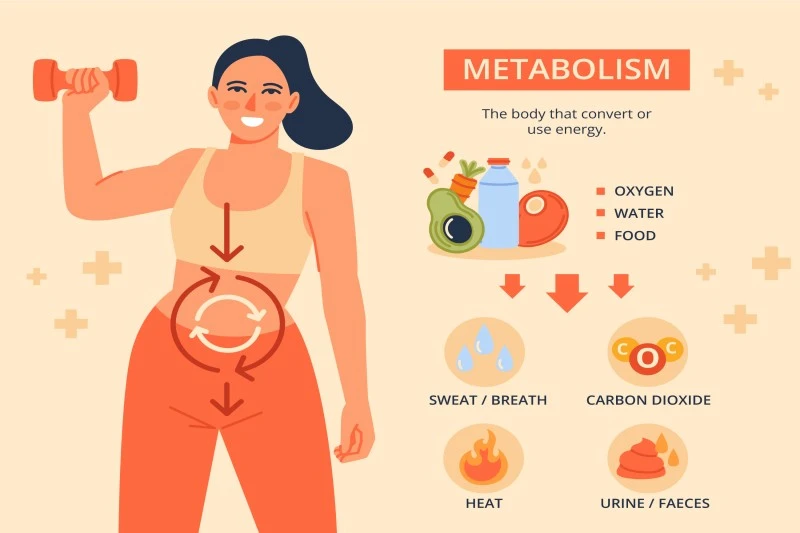Weight regain after a successful weight loss journey is a common and frustrating phenomenon experienced by many individuals. Recent studies shed light on the science behind this paradox, attributing it to epigenetic obesogenic memory embedded in tissues and cells. This scientific insight reveals how the body’s mechanisms resist sustained weight loss, compelling researchers and healthcare professionals to explore new strategies for effective long-term weight management.
The Science Of Weight Regain
The human body is inherently programmed to maintain a state of homeostasis, a balance that preserves its biological stability. Weight loss disrupts this equilibrium, prompting the body to initiate defense mechanisms that encourage weight regain. These mechanisms involve hormonal changes, metabolic adjustments, and the activation of epigenetic memory—a phenomenon where past environmental or physiological conditions leave a lasting imprint on the body’s cells.
Epigenetic obesogenic memory refers to the cellular memory of being in a state of high fat storage. This memory is believed to drive the body to revert to its previous weight by altering how fat is stored and energy is used. The process highlights the body’s preference for conserving energy, which was historically beneficial during times of food scarcity but now poses challenges in an era of food abundance.
Hormonal Influences On Weight Regain
Hormones play a critical role in weight management, and their fluctuations post-weight loss contribute significantly to weight regain. Key hormones include leptin, ghrelin, and insulin, each influencing hunger, satiety, and metabolism.
Leptin, a hormone produced by fat cells, signals fullness to the brain. When fat stores decrease due to weight loss, leptin levels drop, leading to increased hunger and reduced energy expenditure. Ghrelin, often referred to as the hunger hormone, rises during calorie restriction, intensifying hunger signals. This hormonal interplay creates a scenario where individuals are more likely to overeat after losing weight, making it challenging to sustain the results.
Behavioral And Psychological Factors
Weight regain is not solely a biological issue; behavioral and psychological factors also contribute. Many people adopt restrictive diets that are unsustainable in the long term, leading to a cycle of weight loss and regain. This pattern, known as yo-yo dieting, not only affects physical health but also impacts mental well-being, fostering feelings of frustration and defeat.
Psychological stress further exacerbates the issue, as stress triggers the release of cortisol, a hormone that promotes fat storage, particularly around the abdominal region. Emotional eating, often a response to stress, can also undermine weight maintenance efforts.
The Role Of Lifestyle Changes In Preventing Weight Regain
While biological and psychological factors create obstacles, adopting sustainable lifestyle changes can mitigate the risk of weight regain. A balanced approach that focuses on gradual, achievable goals is more effective than extreme calorie restriction.
Regular physical activity is a cornerstone of weight maintenance, as it helps counteract the metabolic slowdown that occurs after weight loss. Incorporating strength training exercises can preserve lean muscle mass, which is crucial for maintaining a healthy metabolism.
Mindful eating practices, such as paying attention to hunger and fullness cues, can help individuals develop a healthier relationship with food. Additionally, addressing emotional triggers and stress through techniques like mindfulness, meditation, or therapy can provide valuable tools for long-term success.
Research Insights Into Obesogenic Memory
Emerging research into epigenetic obesogenic memory has opened new avenues for understanding and addressing weight regain. Scientists are investigating how specific genes and molecular pathways influence the body’s tendency to store fat. By identifying these pathways, researchers hope to develop interventions that can reset the body’s weight set point, a concept that explains why individuals tend to stabilize around a certain weight.
Animal studies have shown promising results in reversing epigenetic memory through targeted therapies. Although these findings are still in their early stages, they pave the way for potential treatments that could prevent weight regain and support long-term health.
The Importance Of Personalized Approaches
Given the complexity of weight regain, personalized approaches to weight management are essential. Factors such as genetics, metabolism, lifestyle, and psychological health vary widely among individuals, making one-size-fits-all solutions ineffective.
Healthcare providers and nutritionists are increasingly adopting personalized strategies that consider an individual’s unique needs and challenges. These approaches combine tailored dietary plans, exercise regimens, and behavioral interventions to create a sustainable framework for weight maintenance.
The Need For Continued Research
While significant progress has been made in understanding weight regain, many questions remain unanswered. Future research should focus on erasing or diminishing obesogenic memory through innovative treatments and therapies. Additionally, studying the long-term effects of weight loss interventions and identifying strategies to sustain their benefits can provide valuable insights for improving public health outcomes.
Weight regain after losing weight is a multifaceted challenge that requires a comprehensive and holistic approach. By combining scientific advancements, sustainable lifestyle changes, and personalized care, individuals can overcome the barriers to maintaining a healthy weight and enjoy lasting improvements in their overall well-being.



